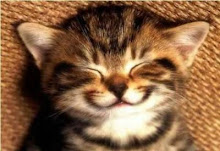Polls show woman likely to be next president
Hypothetical Showings of Hillary Clinton, Elizabeth Dole Suggest Women’s Chances of Winning the Presidency Are Better Than Some Polls Say, Annenberg Data Show
22 June 2004
A woman may not have as tough a time getting elected president as some traditional polling suggests because many people who would prefer not to vote for a woman would actually do so rather than for a candidate of the other party, the University of Pennsylvania’s National Annenberg Election Survey suggests.
Polling of 3,572 adults conducted from May 26 through June 10 indicated that if Senator Hillary Clinton were running against President George Bush she would fare no worse than would Senator John Kerry, and Senator Elizabeth Dole would run against Kerry about as strongly as Bush would.
While 78 percent of Democrats and eight percent of Republicans say they would vote for Kerry today, 78 percent of Democrats and 7 percent of Republicans would vote for Senator Clinton. The independents, who are about evenly split between Bush and Kerry today, also said they would vote about equally for Senator Clinton and George Bush.
The parallels were not as close in a hypothetical race between Kerry and Senator Elizabeth Dole of North Carolina, but the bottom line was similar. Eighty-five percent of Republicans said they would vote for Bush against Kerry, and that share dropped to 74 percent when Dole was pitted against Kerry. But she got 19 percent of the Democrats, compared to the 13 percent that Bush got. She did a bit less well among independents than did Bush. But the overall result of a hypothetical Dole-Kerry race, like the Bush-Kerry and Bush-Clinton polling tests, was within the poll’s margin of sampling error.
Pollsters have been asking about people’s willingness to vote for a woman since 1937. In that year 64 percent of the population said no, but the percentage has dropped steadily since. In 1983 the University of Chicago’s General Social Survey reported that just 13 percent of the population said they would not vote for a qualified woman candidate for president. In 1996 it reported that just seven percent said they would not. No major party has ever nominated a woman for President, and Mrs. Dole dropped out of the 2000 race before the primaries began.
Annenberg polling, with a margin of sampling error of plus or minus two percentage points, showed that 7 percent of the population said they were “very unlikely” to vote for woman when asked, “If your political party nominated a woman for president, how likely would you be to vote for her in the general election.” Another 7 percent said they were somewhat unlikely to vote for a woman of their party.
Rates for the “very unlikely” group were slightly lower for Democrats (5 percent) and liberals (4 percent) than for Republicans (9 percent) and conservatives (10 percent). Such sentiments were most common in the South (9 percent) among those 65 and older (10 percent). They are also more common among those with no more than a high school education (9 percent).
Most surveys ask respondents if they would vote for a woman without naming potential candidates, but those questions may fail to capture how people would act if they had to choose between two real people from two sharply opposed political parties. Those other questions usually ask if people would vote for a woman -- if she were “qualified” -- an attribute their questions about candidate preferences never demand of men.
The Annenberg polling asked respondents how they would vote in several hypothetical races that involved women. For example, “If the election for President were held today and the candidates were Senator Hillary Clinton, the Democratic candidate, and George W. Bush, the Republican candidate, for whom would you vote?”
The survey indicated that many people who said they were “very unlikely” to vote for a woman actually picked the woman candidate in a hypothetical head-to-head race. Twenty-nine percent of those saying they were “very unlikely” to vote for a woman said they would vote for Hillary Clinton in a race against George Bush and 46 percent said they would pick Elizabeth Dole in a match up with John Kerry.
According to Erika Falk, Washington Research Director of the Annenberg Public Policy Center, “The data indicate when potential candidates are considered, partisanship often trumps sexism. The case of Elizabeth Dole is particularly interesting. In that case, those saying they are very unlikely to vote for a woman are actually more likely to select Elizabeth Dole in a Dole vs. Kerry race than are those who say they are just somewhat unlikely to vote for a woman. That’s because the very people who say they are most opposed to women for President are also likely to be conservative Republicans who would be least inclined to cross over and vote for a Democrat.”
In two other hypothetical match-ups, Senator Dianne Feinstein of California and National Security Advisor Condoleezza Rice ran far behind Bush and Kerry respectively. But those findings are probably heavily influenced by the fact that neither of them is as well known to the general public as are Hillary Clinton and Elizabeth Dole.
That National Annenberg Election Survey, the largest academic election poll, is a project of the Annenberg Public Policy Center of the University of Pennsylvania (www.AnnenbergPublicPolicyCenter.org). It has been tracking the presidential campaign since October 7, and interviewing will continue until after Election Day. Dr. Kathleen Hall Jamieson is the director of the survey. Ken Winneg is the managing director of the survey. Adam Clymer is the political director of the survey.
Another major election project of the Annenberg Public Policy Center is FactCheck.org, a project that tries to hold politicians accountable by exposing false or misleading campaign statements. It is available online at www.FactCheck.Org.


